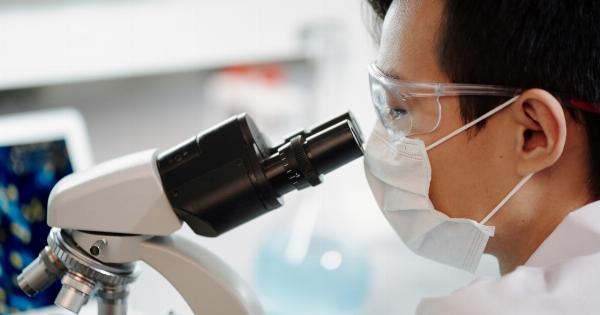Pancreatic cancer is a type of cancer that affects the pancreas, the gland responsible for producing hormones that regulate the body’s blood sugar levels and digestive enzymes that break down food.
Unfortunately, pancreatic cancer often goes undetected until it has reached an advanced stage, making it difficult to treat. However, early detection and treatment can improve your chances of survival.
What are the Symptoms of Pancreatic Cancer?
The symptoms of pancreatic cancer can be vague and non-specific, which is why the cancer often goes undetected until it has spread. Here are some of the common symptoms associated with pancreatic cancer:.
- Unexplained weight loss
- Abdominal pain or discomfort
- Nausea
- Vomiting
- Juandice – yellowing of the skin and eyes
- Change in bowel movements, including diarrhea or constipation
- Loss of appetite
- New onset diabetes
Who is at Risk for Pancreatic Cancer?
There are several risk factors that can increase your chances of developing pancreatic cancer. Some of the most common risk factors include:.
- Age: Most cases of pancreatic cancer occur in people over the age of 60.
- Tobacco use: Smoking cigarettes or using other tobacco products increases your risk of developing pancreatic cancer.
- Family history: If you have a family history of pancreatic cancer, you are at a higher risk of developing the disease.
- Chronic pancreatitis: Long-term inflammation of the pancreas can increase your risk of developing pancreatic cancer.
- Obesity: Being overweight or obese can increase your risk of developing pancreatic cancer.
- Diabetes: People with diabetes are at a higher risk of developing pancreatic cancer.
How is Pancreatic Cancer Diagnosed?
If you are experiencing symptoms of pancreatic cancer or if you have risk factors for the disease, your doctor may recommend certain tests to diagnose the cancer. Here are some of the tests commonly used to diagnose pancreatic cancer:.
- Blood tests: Your doctor may order blood tests to check for markers that are associated with pancreatic cancer.
- Imaging tests: Imaging tests, such as a CT scan, MRI, or ultrasound, can be used to look for tumors in the pancreas.
- Endoscopic ultrasound: This test uses an ultrasound probe that is inserted through the mouth and into the digestive tract to get a closer look at the pancreas.
- Biopsy: If a tumor is found, your doctor may perform a biopsy to collect a sample of tissue and examine it under a microscope to check for cancer cells.
What are the Treatment Options for Pancreatic Cancer?
The treatment for pancreatic cancer will depend on several factors, including the stage of the cancer, the location and size of the tumor, and your overall health. Here are some of the common treatments for pancreatic cancer:.
- Surgery: Surgery may be recommended to remove the tumor, especially if it is caught early before it has spread to other parts of the body.
- Chemotherapy: Chemotherapy drugs can be used to kill cancer cells, either alone or in combination with surgery or radiation therapy.
- Radiation therapy: Radiation therapy uses high-energy radiation to kill cancer cells and shrink tumors.
- Clinical trials: Clinical trials may be an option for people with pancreatic cancer who are not responding to traditional treatments. Clinical trials test new treatments that are not yet available to the public.
How Can You Reduce Your Risk of Pancreatic Cancer?
While there is no surefire way to prevent pancreatic cancer, there are certain steps you can take to reduce your risk of developing the disease:.
- Quit smoking: If you smoke, quitting can significantly lower your risk of developing pancreatic cancer.
- Maintain a healthy weight: Being overweight or obese can increase your risk of developing pancreatic cancer, so eating a healthy diet and getting regular exercise can help.
- Limit alcohol consumption: Drinking too much alcohol can damage the pancreas and increase your risk of developing pancreatic cancer.
- Get screened if you have risk factors: If you have risk factors for pancreatic cancer, such as a family history of the disease, talk to your doctor about whether you should be screened.
Conclusion
Pancreatic cancer is a serious disease that can be difficult to treat, especially if it is not caught early.
If you have risk factors for the disease or are experiencing symptoms, it is important to talk to your doctor about whether you should be screened for pancreatic cancer. By taking steps to reduce your risk of developing pancreatic cancer, you can help protect your health and improve your chances of survival if you do develop the disease.



























